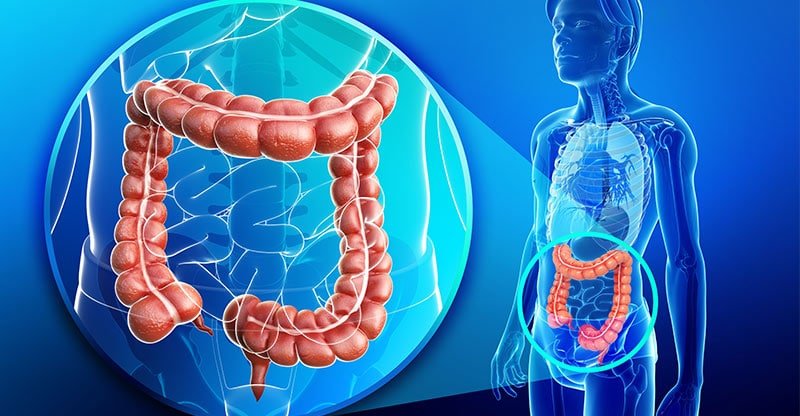Gluten-free diets have become extremely popular lately, and most of us know someone who is currently living a gluten-free lifestyle. Some people embark on a gluten-free diet as the treatment for Celiac Disease, which is an auto-immune disorder caused by gluten which attacks the lining of the small intestine.
The only treatment for Celiac Disease is strict adherence to a gluten-free diet. In 2012, a survey conducted by the Mayo Clinic determined that over 1.8 million Americans have Celiac Disease.
But far more individuals in the US have gluten sensitivity, which can cause symptoms such as fatigue, headaches, irritable bowel syndrome, or other issues. Some estimates suggest that nearly 7% of Americans or 18 million people are sensitive to gluten and wheat products, and some surveys suggest that over 40 million people purchase gluten-free products on a regular basis.
Gluten sensitivity is more difficult to accurately diagnose than Celiac Disease, but many people claim to feel significantly better when they are on a gluten-free diet. Research is beginning to show the positive benefits of avoiding gluten whether or not you have an auto-immune disorder. Here are some of the many ways that you may benefit from a gluten-free diet.
10 Benefits of Eating Gluten-free
- Better Digestive Health
- Increased Energy Levels
- Reduced Inflammation
- Healthier Diet for a Healthier Life
- Better Mood
- Improved Cholesterol Levels
- Reduced Risk of Heart Disease and Diabetes
- Ward off Viruses and Germs
- Promotes Healthy Weight-loss
- Lower Chance of getting another Autoimmune Disease
1. Better Digestive Health
If you suffer from persistent digestive issues, completely eliminating gluten from your diet may help alleviate some of your problems. For those with Celiac Disease, gluten causes inflammation in the small intestine and also flattens the intestinal villi, which reduces the number of nutrients that can be absorbed and can lead to malnutrition.

The National Foundation for Celiac Awareness states that eliminating gluten reduces stomach upset, abdominal cramping, diarrhea, gas, bloating, and constipation in those with Celiac Disease or gluten intolerance.
Many people who have been diagnosed with Irritable Bowel Syndrome (IBS) or Crohn’s Disease may also have a gluten intolerance or sensitivity. Gluten sensitivities are not as simple to diagnose as Celiac Disease, but can clearly contribute to gastrointestinal issues. Eliminate all gluten from your diet for at least two weeks to see if there is any improvement in your symptoms. Some people start to feel better within a few days of eliminating gluten from their diet
2. Increased Energy Levels
Do you wish you could have a long nap every afternoon? Fatigue is a common complaint of those with Celiac Disease or who have gastrointestinal issues. If you are sensitive to gluten, it’s quite likely that your body is not absorbing the necessary amount of minerals, vitamins, and nutrients. Even low levels of malnutrition can result in lowered energy levels, and episodes of fatigue, especially in the afternoon.
Individuals with gluten intolerance often experience intense feelings of tiredness and weakness that are unexplained. In severe cases, you may become anemic due to malabsorption of iron, which can cause extreme fatigue, bruising, and shortness of breath.
Eliminating gluten from your diet can work much better that drinking several cups of coffee, or grabbing a sugary treat that will pick you up initially, but leads to a crash later. By eliminating gluten, the inflammation in your intestines will begin to subside, and your body can start to absorb an adequate level of nutrients. In many cases, this can quickly increase your energy level.
3. Reduced Inflammation
In many individuals, gluten causes inflammation in both the gastro-intestinal system, and in other tissues throughout the body. The Mayo Clinic indicates that people with a gluten sensitivity can experience a variety of joint and muscle pains, numbness, and cramping after eating gluten. These problems are caused by cytokines, which cause inflammation in other organs and systems, not just the intestinal system. Excessive cytokine levels caused by ongoing gluten consumption will damage cells and tissues throughout the body.
This chronic inflammation can lead to eczema, arthritis, chronic pain, and even cancer. It makes sense to take steps to reduce the amount of inflammation in your body, so consider eating gluten-free for several weeks to see if your symptoms improve. Even if you have just a slight reaction to gluten, going gluten-free can lead to some substantial improvements in your health, by contributing to lower inflammation levels.
4. Healthier Diet for a Healthier Life
Most people who start eating gluten-free develop a much better diet than they did previously. By eliminating junk food and processed food, your diet is automatically vastly improved.
Gluten-free eating means no more bread, cakes, chips, beer, fried chicken or cookies (to name a few items!) Though this can be very distressing initially, the health benefits far outweigh the cravings. Processed food contains preservatives, artificial flavors and ingredients, and other chemicals that are not present in a whole foods diet, where the emphasis is foods that are as close to their original state as possible.
A gluten-free diet encourages consumption of many different fruits and vegetables, instead of processed snacks. This can also lead to lower consumption of fats and oils that can be found in commercial products. Eating a strict gluten-free diet will reduce your likelihood of contracting cancer, heart disease, diabetes, and other conditions. In addition, a healthy gluten-free diet will increase your immune system response, making it more likely that you can fight off colds, other viruses, and bacterial infections.
5. Better Mood
According to research conducted by the National Foundation for Celiac Awareness, people with gluten sensitivities often experience ADHD-type symptoms, headaches, muddled thinking, low mood, anxiety, and depression.
When a sensitive person consumes gluten, cytokines are released as a result of the inflammation in the intestines. Cytokines are inflammatory molecules that can interfere with normal brain functioning. High levels of cytokines may lead to Alzheimer’s, dementia, autism, and Parkinson’s disease. Gluten is also known to interfere with the production of neurotransmitters, including serotonin and dopamine, both of which are related to mood, libido, and sleep patterns.

When gluten is removed from the diet, one of the most significant benefits can be improved neurological health, and mental well-being. After a few weeks on a gluten-free diet, people often remark that they can think more clearly, focus for longer periods of time, and experience greater contentment. In addition, following a gluten-free diet may lead to better nutrition levels and less pain, both of which are bound to improve your mood.
6. Improved Cholesterol Levels
Gluten-free diets eliminate many unhealthy foods, like chips, cookies and cake that can contain partially hydrogenated trans fats. This type of fat will raise your LDL (unhealthy) cholesterol and lower you HDL (healthy) cholesterol. Therefore, it’s not surprising that people who switch to a gluten-free diet often report that their cholesterol levels are lower. This in turn can lead to lower doses, or even complete elimination of common cholesterol medications like Zocor or Lipitor.
According to Dr. David Williams, removing wheat and gluten from the diet will lead to numerous benefits including:
- Lower LDL cholesterol levels
- Lower triglyceride levels
- Increased HDL cholesterol
- Weight loss
- Reduction in ongoing bowel issues.
In addition, if you replace the gluten with fresh fruit and vegetables, you are doing yourself a double favor. Pick fruits and veggies that are high in fiber, like mangos and broccoli, for the most impact on your cholesterol levels.
7. Reduced Risk of Heart Disease and Diabetes
Eliminating gluten can help lower your risk of heart disease, some types of cancers, and other health-related illnesses. Recent studies are showing a link between gluten sensitivity and different types of heart disease. One study showed that the presence of pro-inflammatory cytokines in the fluid around the heart was a precursor to pericarditis (a condition where the sack around the heart becomes inflamed.)
In another study, the researchers found that those with untreated Celiac or gluten insensitivity often suffer from malnourishment, which can subsequently lead to cardiomyopathy and other cardiac disorders.
Recently, research indicates that since both Celiac and diabetes are autoimmune diseases, it is likely that they share a genetic basis. New guidelines suggest that people with type 1 diabetes should receive testing for both Celiac and gluten sensitivity, with a further recommendation that they try a gluten-free diet.
In addition, the American Diabetes Association believes that all children with type 1 diabetes should be screened for Celiac. By moving to a gluten-free diet, you or your family may help reduce their chances of getting Celiac disease.
8. Ward off Viruses and Germs
Many foods that are recommended on a gluten-free diet contain more antioxidants, vitamins, and minerals, than common processed foods that contain gluten. Assuming you substitute wheat and gluten products with healthy alternatives like fruits, vegetables, and high-quality proteins, then a gluten-free lifestyle will most likely strengthen your immune system, providing you with an increased ability to combat viruses and germs.
Food sensitivities, such as gluten, are one of the primary reasons for a weak immune system. In addition to a gluten-free diet, you may consider taking an adult strength multi-vitamin, to combat any potential nutritional deficiencies. Even minor nutritional deficiencies can result in a lowered resistance to common viruses like cold viruses, or the flu.
If you are stressed, it is likely that your immune system is being challenged, as well. To get back on track, stick to a whole foods gluten-free diet, with significant emphasis on fruits, vegetables, and lean sources of protein.
9. Promotes Healthy Weight-loss
Gluten-based foods can lead to bloating and weight gain for those with Celiac Disease or gluten sensitivity, so eliminating these from your diet may help you lose weight.

Many of us are ‘addicted’ to the carbohydrates found in the typical American diet. When gluten is identified as the cause of intestinal issues, removing it from the diet means cutting out bread and pasta.
In addition, you may save calories since you are no longer eating as much butter, cheese, and calorie-rich sauces that often go with carbs. Instead, try eating more beans, which are extremely filling, rich in fiber, and will help you lose weight. Replace calorie-laden pasta dishes and sandwiches with bean soups, hummus, dips, and vegetarian burritos.
However, do not assume that every gluten-free item is good for you, especially sweets like gluten-free cookies and cakes. These still need to be eaten in moderation. Your intestines will thank you, and so will your waistline!
10. Lower Chance of getting another Autoimmune Disease
Research has proven that many autoimmune diseases go together, meaning that if you already have one condition like Celiac Disease, your risk of developing another is higher than the general population. By removing gluten from your diet now, you are effectively lowering the chances of developing other autoimmune diseases in the future.
Gluten causes inflammation in the intestines, which in many individuals may lead to a ‘leaky gut’ where the intestines become ‘permeable’. Gluten, proteins, and toxins then cross from the intestines to the bloodstream. The body’s immune system will often react to these particles in the bloodstream with a heightened immune response, thereby increasing your risk for developing another auto-immune disorder, like lupus, rheumatoid arthritis, or Hashimoto’s syndrome.
By eliminating gluten from your diet, you immediately reduce the inflammation and lower your chances of getting a second autoimmune disease.
Conclusion
The gluten-free product industry has grown tremendously in the past ten years. In 2006, sales of gluten-free products reached about $900 million. By 2015, gluten-free products topped out at over $9 Billion, proving that gluten-free food has become a mainstream offering.
Around 3,000 new gluten-free snack products were introduced in the US in the past 6 years. Gluten-free products taste better than they did in the past and the quality and availability of these products are far greater than even a few years ago. Many people recognize that gluten-free products are healthier, and a gluten-free diet can encourage you to make other healthy food choices.
Celiac Disease and gluten sensitivity can have a profound effect on your life, and enduring these conditions can be very trying and, in some cases, even life-threatening. Moving to a gluten-free diet is the best option for your continued health, and has some excellent side benefits, as listed above.
Sources
- http://www.nytimes.com/2014/02/18/business/food-industry-wagers-big-on-gluten-free.html?_r=0
- http://thegluten-freeagency.com/gluten-free-market-trends/
- https://www.jeffsanders.com/benefits-of-a-gluten-free-diet/
- http://www.godfathers.com/blog/top-10-benefits-going-gluten-free
- http://www.onegreenplanet.org/natural-health/5-awesome-benefits-of-going-gluten-free/
- http://www.statista.com/statistics/261099/us-gluten-free-and-free-from-retail-sales/
- http://www.foodbusinessnews.net/articles/news_home/Research/2015/07/Getting_a_grip_on_gluten-free.aspx?ID={E8451798-7423-451F-87A2-14FC80AA6B5D}&cck=1
- https://www.glutenfreesociety.org/heart-disease-and-gluten-sensitivity/
- http://www.amymyersmd.com/2015/09/3-important-reasons-to-give-up-gluten-if-you-have-an-autoimmune-disease/
- http://ultimatepaleoguide.com/hidden-benefits-gluten-free-diet/
- http://www.bistromd.com/gluten-free/the-health-benefits-of-a-gluten-free-diet
- http://healthyeating.sfgate.com/benefits-eating-glutenfree-6211.html
- https://www.glutenfreesociety.org/leaky-gut-and-autoimmune-disease/
- http://www.drdavidwilliams.com/cholesterol-and-gluten/
- http://www.diabeticlivingonline.com/food-to-eat/nutrition/gluten-and-diabetes-there-connection

Thanks for mentioning some benefits of eating gluten-free are better digestive health, increased energy levels, reduced inflammation, and having a better mood. My wife is thinking of going to a natural food store because she’s considering taking gluten out of her diet since she speculates that she’ll feel better and healthier. It seems like a good idea to go to a reputable establishment that sells high-quality products to help people who are trying to eat more healthily.
I can honestly say after just one week of gluten free food my body is talking to me in positive ways. Such as reduced swelling in my feet, less pain in my hands, and a super improvement in my energy level. I just am about to turn 68 and feel like a gluten free diet will definitely improve my lifestyle and let me get back to golf and other outside activities. I highly recommend everyone try going gluten free for just one week to see how much better you will feel. It is easy and a no-brainer. Good luck!
Hey Tom,
Glad to hear it! I also recommend folks try a gluten-free diet for at least a few months to really see if it helps or not.